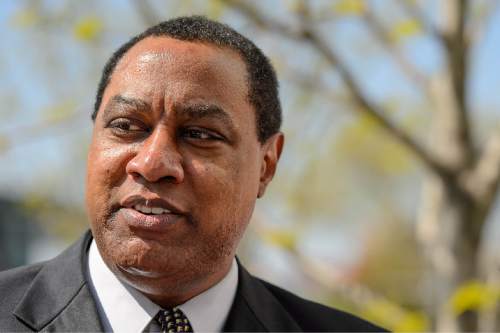This is an archived article that was published on sltrib.com in 2015, and information in the article may be outdated. It is provided only for personal research purposes and may not be reprinted.
Utah Democrats said Wednesday they cannot afford the $100,000 needed to run their own online presidential primary next year, and instead simply will allow people to cast ballots at party caucuses.
Lauren Littlefield, party executive director, blamed Republican infighting for blocking state funding needed for a true presidential primary and said that is forcing the alternative move that likely will hurt voter participation.
Utah Republican Party Chairman James Evans said Democrats "are creating fiction." He said his party can afford and will offer online presidential primary voting, along with voting at caucuses, which he predicted will increase turnout.
The controversy comes after the GOP-controlled Legislature failed to pass HB329 this year, which would have provided $3 million for a 2016 presidential primary for all parties. Without it, parties are forced to fund their own presidential-nomination efforts.
The bill died after Evans said Republicans would skip such a primary even if it were held — but supported passing funding to allow other parties to participate in such an election.
He said his party believed a caucus could bring a greater turnout than a primary — despite a letter from 2012 presidential nominee Mitt Romney warning legislators that such a move would mean "tens of thousands fewer voters will participate."
Other reasons Evans listed at the time involved a new election-reform law, SB54, which weakens the power of the old caucus-convention system that some said gave extremists too much power in the low-turnout meetings. The Utah Republican Party is challenging it in court.
SB54 requires Republicans to allow unaffiliated voters to participate in GOP primaries. But the national party requires that Republicans only be involved in deciding who wins the state's delegates to the national GOP convention.
However, Mark Thomas, state elections director for Lt. Gov. Spencer Cox, said Wednesday that SB54 does not apply to presidential primaries, only primaries for state and local offices. So Republicans could choose to limit their presidential primary to registered Republicans only.
Still, Littlefield said in a news release, "the Utah GOP has closed the door once again on wide participation in our political process through their SB54 delay tactics."
She added that "a state-run election would have allowed all Utahns to vote in this important part of the political process."
Democrats decided the $100,000 needed for an online primary should be spent instead to turn out voters in the final 2016 general election, she said. "After all, state parties should be in the business of winning elections, not running them."
Both parties have scheduled caucuses for March 22, 2016.
Evans said Republicans will allow party members to vote for president either at the caucus or to register with the party to vote online. "Our desire to have a presidential caucus has more to do with demonstrating that we can have greater turnout by introducing an online option."
SB54 passed last year as a compromise to stop a ballot-initiative drive seeking to replace party caucuses and conventions with a direct primary.
SB54 now allows candidates to qualify for a primary either through conventions or by gathering enough signatures. It also requires parties to allow unaffiliated voters to participate in primaries.



